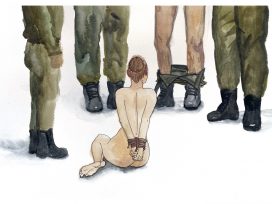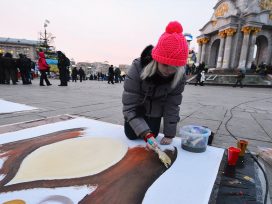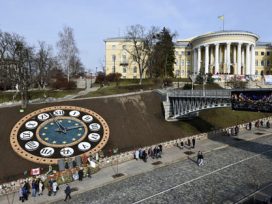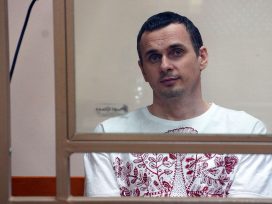Kateryna Botanova
is a Basel-based cultural critic and curator from Kyiv, Ukraine. She is a co-curator of a multidisciplinary cultural festival CULTURESCAPES (Basel, Switzerland) and an editor of festival readers. She was a director of the Center for Contemporary Art (SCM) in Kyiv and an editor-in-chief of a cultural online magazine KORYDOR. She is a consultant for various EU programs and institutions on cultural relations and cultural mediation. As a cultural critic and essayist she contributes to numerous media. She is a member of PEN-Ukraine.
Articles

Defined by silence
The Ukrainian art that was destroyed – and the art that never happened
Ukrainian artists are struggling to invent a new language to express their experience of the war, one that goes beyond tropes and commonplaces. Some of them frantically document, others reflect in hurried sketches while on the run with their kids. Many artists don’t create at all – they are on the frontlines.

Hopes and dreams of the bigger world
Ukrainian art since Maidan
Maidan set art free from the fight for the political agenda, since everything has become a part of the political agenda. On the other hand, the rapidly accelerating political and geopolitical changes brought several challenges for artists.

Back to the future in Ukraine
Cultural policies two years after Maidan
The Maidan protests have given Ukraine a chance to stop and look at its future, and plan it the way she wanted to, writes Kateryna Botanova. Now it’s becoming apparent how to make the revolutionary shift from continual fighting, distrust and questioning of legitimacy to mutual support, collaboration and growth.




